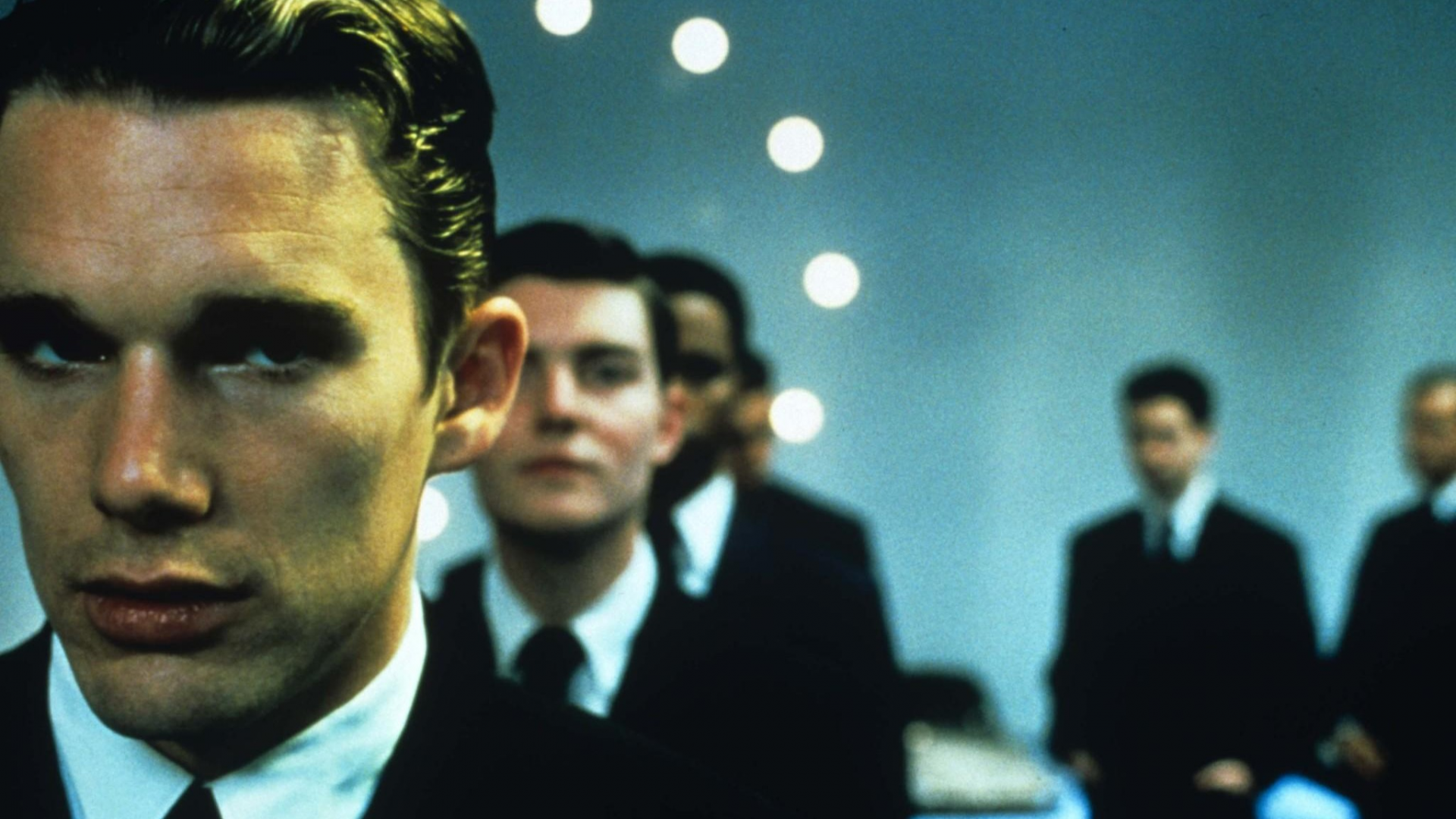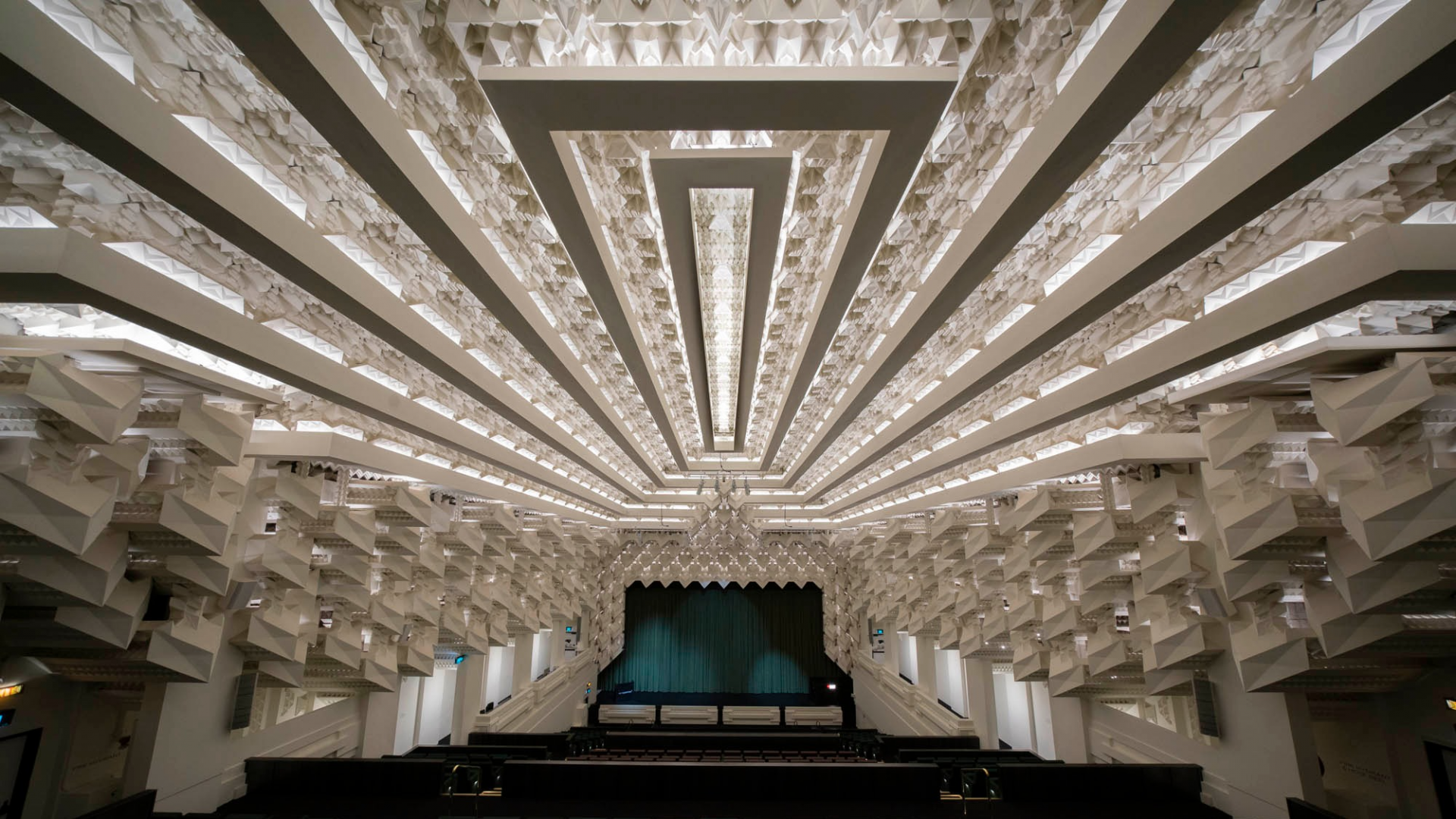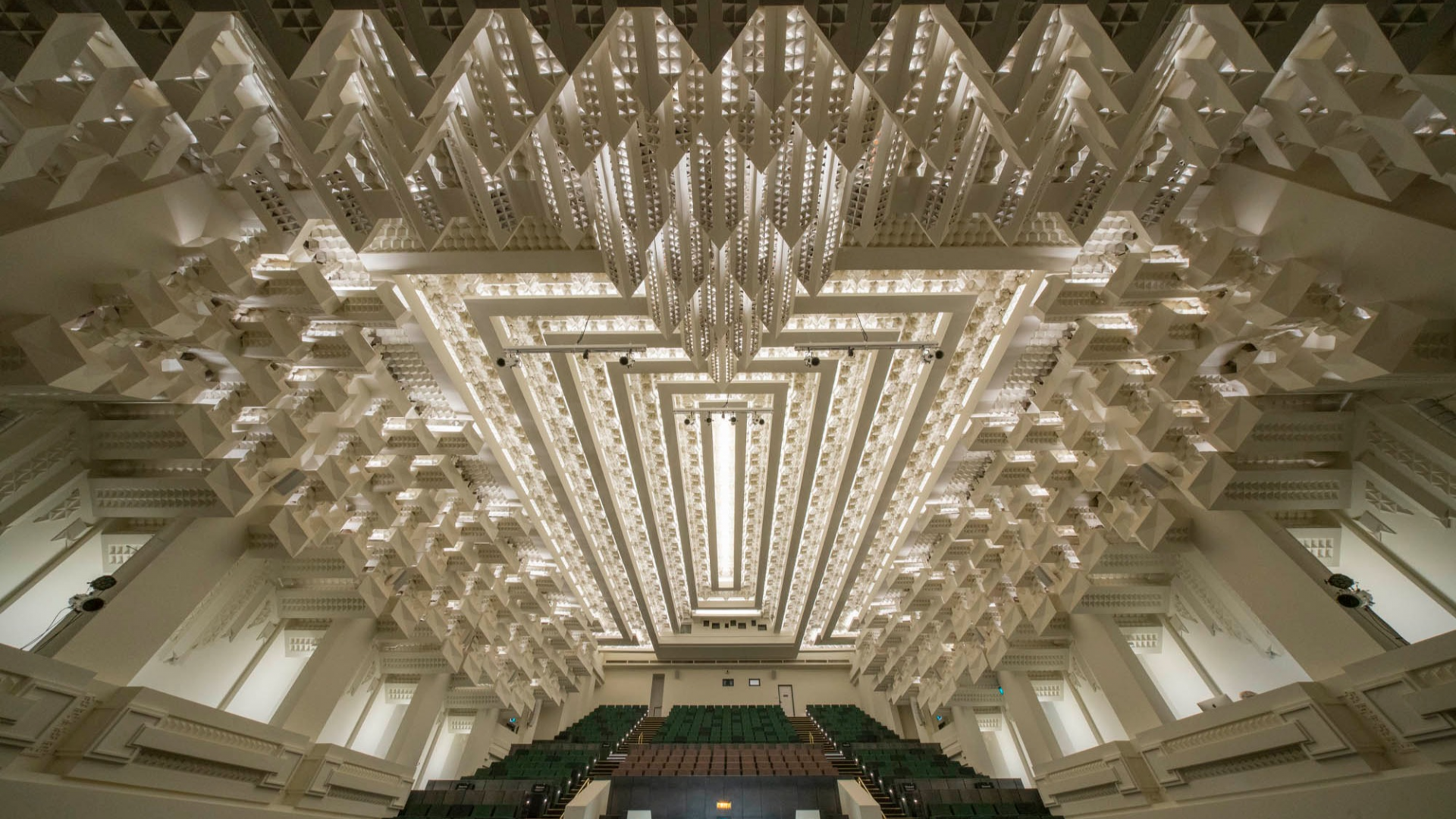Past Futures: Gattaca Past Event
Classism takes on its own genetic code in Andrew Niccol’s futurist classic.
In the exquisitely designed Gattaca we are confronted with the plight of Vincent Freeman (Ethan Hawke), who has always fantasised about travelling into outer space, but is grounded by his status as a genetically inferior ‘in-valid’. His solution is to purchase the genes of Jerome Morrow (Jude Law), a laboratory-engineered ‘valid’, with superior DNA. This blackmarket ‘passport’ enables Vincent to join the Gattaca space program, where he falls in love with Irene (Uma Thurman), and the helix starts to unravel.
Gattaca imagines a world in the not too distant future to ours, where society is striated according to people’s genetic make-up, rather than class, race, gender or sexuality. This is an interesting idea as this difference is predicated not on something immediately visible, but rather something ‘hidden’. This is in distinct contrast to where society is oriented, where how you appear – the colour of your skin, even how you might dress or talk – is the main determiner of how you are treated and able to navigate the world, especially professionally and socially.
In Gattaca this schematic striation still determines one’s opportunities and success, and Freeman’s opportunity to travel to Saturn’s largest moon, Titan, is his dream made possible. He assumes the genetic identity of another, and the doors open for him. It is his inscribed passport.
This idea echoes across current world events, and conversations about the introduction of ‘vaccine cards’: a card that must always be carried on the person, and those who possess them can access travel, the arts, sports, other life pleasures, that others may not. This is a conglomerate of science-fictions.
This 1990s classic, with Hawke and Thurman in earned roles, foresaw some of the quandaries the Covid-19 pandemic has thrust upon our world and invites us to again think about the implications of such a stark organisation of inequality.
1997, 107min, M, 35mm, United States, English, Director Andrew Niccol, Cast Ethan Hawke, Uma Thurman, Jude Law Courtesy Park Circus
Early arrivals are invited to explore the exhibitions in the upstairs Salon, Lounge and Loft (first in best dressed for exhibition viewing prior to the film due to capacity limits).
This film is part of The Capitol‘s Past Futures film program curated by Ghita Loebenstein and Michelle Carey.
In Past Futures we look at imagined dystopias and utopias that made their way into the collective conscious – into the design of now – and consider what might be in the making to come.
Videos
PAST FUTURES
Dystopias, Utopias and Back to Futurism on Screen
What futures were past filmmakers imagining for our present world? And did those sci fi prophesies come true? All dreamers and designers start from a place of deep imagining.
In Past Futures we look at imagined dystopias and utopias that made their way into the collective conscious – into the design of now – and consider what might be in the making to come.
In our selection of sci fi visionaries, some classic, others populist, and still others perhaps idiosyncratic, we look away from the stuff of shiny space wars, and towards a survey of the social, political, technological, environmental, interpersonal and existential prophesies dreamed onto the cinema screen over the last century.
To paraphrase Roger Ebert, these films offer “an arsenal of images for imagining the world.”
What worlds were filmmakers of the past envisioning for today? Which of these past-futures have materialised in shades of our lived realities? What do modern utopias and dystopias look like? Can cinema help us collectively design a world we want to see?
In curating this series my co-curator, Michelle Carey, and I considered the future worlds that filmmakers were envisioning in the past. In our selection you’ll find distinct visions from pasts that vary in length from way back to cinema’s silent beginnings, to just a moment or two ago.
The curated titles awakened a curiosity in us by way of each film’s aesthetic and philosophical design, some quixotic and wildly ambitious, others comparatively domestic while still suggesting a collective turn in consciousness or new ways of seeing and being.
Our present is very much felt and reflected in these past futures. What future visions are we projecting on screen, now?
Ghita Loebenstein, Creative Producer, The Capitol – RMIT University





